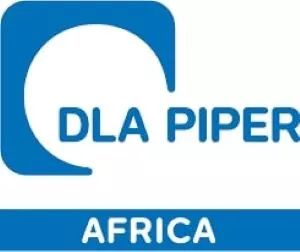1. INTRODUCTION
1.1. The Electricity Act, 2023 (the “Act”) was signed into law on the 8th day of June 2023 by the President of the Federal Republic of Nigeria.
1.2. The Act, among other things, repealed and replaced the Electricity and Power Sector Reform Act, 2005 and seeks to provide a comprehensive legal and institutional framework for the power sector in Nigeria in the areas of electricity generation, transmission, system operation, distribution, supply, trading and to stimulate the contribution of renewable energy to Nigeria's energy mix. It is expected that this will create an enabling environment to attract investment in the Nigerian Electricity Supply Industry (NESI).
1.3. This work sets out the key provisions, changes, and implications of the Act on the power sector in Nigeria.
2. KEY PROVISIONS AND CHANGES IN THE ACT
2.1. Repeal of the Electric Power Sector Reform Act 2005.
Part of the objectives of the Act as indicated, is to among other things, repeal the Electric Power Sector Reform Act, 2005 (EPSRA), to consolidate all legislations in the NESI, and to provide the ideal legal and institutional framework that will regulate the post–privatization phase of the NESI.1
2.2. Transition into Medium Term and Long-Term Stages of the Nigerian Electricity Market
The Act provides for the process of development of the Nigeria electricity market from the current Traditional Market Stage into the Medium Term and Long-Term electricity markets stages. The Act charges the Nigerian Electricity Regulatory Commission (NERC) with the responsibility to monitor and ensure these transitions, and to declare the commencement of the Medium Term and Long- Term electricity markets stages, subject to the satisfaction of the pre-conditions and such features as may be prescribed under the Market Rules and any amendment to the latter.2
2.3. State Generation and Distribution of Electricity
The Act grants State Governments the authority to engage in power generation, transmission and distribution in areas within that State.3 It further re-enforces the provisions of the recent Constitution of the Federal Republic of Nigeria (Fifth Alteration) Act, No. 33, 2023 (the “5th Alteration Act”) which amended Paragraph 14 (b), Part II of the Second Schedule to the Constitution, thereby expanding the legislative powers of the states to legislate on electricity generation, transmission and distribution for areas within their States whether or not covered by the national grid system.
2.4. The provisions of the Act permit State Legislatures to develop policies and frameworks in respect to the generation, transmission, and distribution of electricity within its State, empowers, but does not obligate the States to make their own laws on the supply of electric power. Hence, to the extent that a State does not make any new law nor take any positive steps, the Federal regime will continue to apply with respect to those States.
2.5. As such, until a State establishes its own electricity market laws, NERC will continue to regulate electricity business exclusively within that State. Currently, Lagos, Edo, and Kaduna States have already enacted electricity market laws and may commence regulation of their markets. However, in states without such laws, NERC will continue to regulate.
2.6. National Integrated Electricity Policy and Strategic Implementation Plan
The Act provides for the preparation and implementation of an integrated resource plan for the NESI through the National Integrated Electricity Policy and Strategic Implementation Plan (“NIEPSIP”) concerning certain aspects relevant to the development of power sector stated in the Act and such other areas that the Federal Government may determine as requiring policy direction. The Federal Ministry of Power is mandated within one (1) year from the commencement of the Act, to prepare and publish in the Federal Gazette, a NIEPSIP in consultation with relevant Government Authorities (as defined under the Act) to guide the overall development of the electric power sector in Nigeria.4
2.7. The Act does not provide guidance on how to resolve conflicts between the State's policies and NIEPSIP.
2.8. Role of Nigerian Electricity Bulk Trading Plc (NBET)
The Act recognises the legal validity of the evolution and reforms of the NESI from its vertically integrated service provision arrangement under the defunct NEPA to the privatized phase implemented under the repealed EPSRA, which included the establishment of the Nigerian Electricity Bulk Trading Plc (NBET), as a trading licensee holding a bulk purchase and resale license for bulk procurement and bulk resale of electricity and ancillary services from independent power producers and from the successor generation companies in accordance with its licence.5
2.9. However, in line with provisions of the Act in relation to the transition of the Nigerian electricity market to the Medium Term and Long-Term Electricity Market stages from its current transitional stage, NERC is authorised to issue directive and within such period as it may specify, direct NBET to cease to enter into contracts for the purpose of resale of electricity and ancillary services and to novate its existing contractual rights and obligations to other new trading licensees as specified in the Act6.
2.10. Establishment of the National Hydroelectric Power Producing Areas Development Commission (N-HYPPADEC)
The Act repealed the Hydroelectric Power Producing Areas Development Commission (Establishment, Etc) Act, 2010 (Amendment) Act, 2018 and made provision for the establishment of the National Hydroelectric Power Producing Areas Development Commission (N-HYPPADEC) which is saddled with the responsibility of formulating policies and guidelines for the development of hydroelectric power producing areas and managing ecological problems due to the operations of the dam and other hydro-electric power activities.
2.11. Additionally, the Act provides that ten percent (10%) of the total revenue generated by any company or authority from the operations of any hydroelectric dams shall be paid to the fund maintained by N-HYPPADEC.7 As such, the concession fees and royalties payable by concessionaires of hydro plants in Nigeria may include additional fees to cover for the contribution required to be paid to the N-HYPPADEC fund.
2.12. Tariffs and Subsidies
The Act provides for establishment and adoption of one or more tariff methodologies in regulating electricity prices for activities in the NESI, which shall amongst other provisions, allow a licensee that operates efficiently to recover the full costs of its business, give consumers economically efficient signals regarding the cost that their consumption imposes on the licensee's business, avoid undue discrimination between consumers and consumer categories and phase out or substantially reduce cross subsides over a time frame specified by the NERC.8
2.13. The Act also provides that any grant of subsidies by Federal or State Governments to any consumer or class of consumers shall be implemented within the Consumer Assistance Fund established pursuant to the Act and under strict implementation and supervision of NERC. This is to facilitate gradual reduction of cross subsidies9 before the declaration of the commencement of a Long-Term Market Stage in line with the Act.10
2.14. Renewable Energy Purchase and Generation Obligation
The Act promotes renewable energy by requiring electricity generation licensees to meet renewable generation obligations as prescribed by NERC.11 This means that electricity-generating companies are required to generate power from renewable energy sources and purchase power generated from renewable energy sources.
2.15. Likewise, the Act also provides for renewable purchase obligations on distribution and supply licensee, that is, holders of distribution license or supply license are required to purchase a minimum quantity of their power requirements from renewable energy sources. In addition, a bulk customer permitted by NERC is mandated to purchase a specified percentage of its total electricity needs from renewable energy sources or pay a premium to NERC.12
3. POTENTIAL IMPLICATIONS OF THE ACT ON THE POWER SECTOR AND ITS STAKEHOLDERS
3.1. Multiple Licensing Regime
The enactment of the Act and the changes introduced by the 5th Alteration Act which empowers State governments to regulate and make laws on the generation, transmission and distribution of electricity within their states - might trigger a Federal and State regulatory regimes that may create multiple licensing, permit and approval requirements.
3.2. Operators in the NESI may be required to be licensed at various State levels, including multiple licensing for operators whose activities span more than one (1) State. This may have implication as to costs and timing of approvals (as timelines may not be uniform across States).
3.3. However, we also note that the Act now empowers State Governments to make laws with respect to the electricity markets within their respective States and commence regulation of their markets. However, to the extent that States does not make any new law nor take any positive steps to regulate their electricity markets – the Federal regime may continue to apply with respect to those States, until such State laws are established. The Federal regime will also continue to apply to supply of electricity across States lines and cross border with other countries.
3.4. Installation of Meters and implications for Discos
Section 89(1) of the Act provides that no licensee shall supply electricity after the expiration of the date appointed by NERC except through installation of a proper meter in accordance with the relevant regulations made by NERC.
3.5. By virtue of the above, customers without meters after the expiration of the date appointed by NERC will not have access to electricity. While we note that the Federal Government has introduced various policies (such as the Meter Asset Provider policy introduced in 2018 and the National Mass Metering Programme introduced by the Central Bank of Nigeria 2020) with the aim of bridging the metering gap by offering a single digit interest loans to Discos and local manufacturers for the procurement and supply of electricity meter, the huge metering gap for end-use customers is still a key challenge in the industry.
3.6. Private sector investment in Transmission Network
The Act permits a non-licensee (private investor) to make investment in the existing transmission operated and maintained by the TCN on project agreement between the non- licensee and the licensee. Furthermore, NERC in consultation with appropriate authority may approve an application by an investor for: a long-term concession of old or new transmission lines under any concession or commercial arrangement with the Transmission Service Provider; any concession or commercial arrangement between concessionaire and TCN for expansion of the transmission network; and project finance by private investors whereby investors finance, build, own and maintain parts of the transmission network.13
3.7. Hence, private investors may enter into commercial arrangement or concession of old or new transmission lines. Additionally, private investors may consider a long-term financing of the transmission network. This will help ameliorate the issue of inadequate funding and dilapidated infrastructures which have impacted the transmission network over time.
3.8. Competition
Pursuant to the implementation of the Act, State legislatures are given the authority to equally regulate the generation, transmission, and distribution of electricity within their States. This liberalisation of the electricity market is to likely attract more private and independent investors to the electricity sector to create a robust and more enhanced participation in the power sector.
3.9. The Act also provides that the Federal or State Government may enter into a public-private partnership arrangement with private companies for investment in the transmission network in accordance with the provisions of the Act and relevant framework on infrastructure concessions and public-private partnerships.14
3.10. This is expected to increase participation of investors and create a healthy competition especially as it relates to generation, transmission and distribution of electricity within the State. Such enhanced competition may afford flexibility in terms of choice and the ability of customers or consumers to elect or choose providers that will better serve their electricity needs.
3.11. Collaboration
The changes sought to be introduced by the Act, affords new opportunities for substantive engagements and collaboration between major stakeholders in the industry and the various State Governments, as the latter will look towards potentially developing intrastate power networks to boost electricity supply within their respective states.
3.12. Furthermore, with the amendment introduced by the 5th Alteration Act and the Act, companies licensed to operate in areas covered by the national grid can effectively collaborate with companies operating on an off-grid basis thereby harmonising operation. This collaboration will focus on investments in utilising the existing operational framework between the companies, improving electricity generation, transmission, and distribution output and, potentially, increasing profit.
3.13. Franchising arrangements by DisCos in the NESI
One of the novel provisions of the Act that seeks to encourage investments in the power sector is the provision for approval of distribution or supply franchising arrangement or any other commercial arrangement between the distribution or supply licensees and third parties within the respective distribution or supply licensees' operations and coverage areas in accordance with approved franchising terms, franchising models, tariffs as may be approved by NERC.15
3.14. Based on this, participation in the distribution and supply network will increase significantly. As such, holders of a distribution licence may recoup investment and generate additional revenue by entering into a franchising arrangement or other commercial arrangement with third parties within their licenced area.
3.15. However, the Act also provides that NERC for the purpose of approving a request for electricity distribution franchising at any time during any of the market stages recognized under the Act and the Market Rules, is to take into cognizance, the aggregate tenure of licenses held by successor distribution companies, any disaggregation of the distribution licenses into distribution and supply licenses and such distribution franchising framework as may be put in place by NERC.16
3.16. Possible Encroachment on Distribution Franchise Areas
With the implementation of the Act and the 5th Alteration Act, which gives State Governments and legislatures the authority to make laws and regulate the electricity markets within their states, a new set of electricity distribution companies that are different from the existing legacy Discos will likely emerge and, depending on other market dynamics, investors may focus their attention on these new entrants instead of the legacy Discos.
4. CONCLUSION
4.1. The Electricity Act, 2023 is a major leap in the right direction with its aims and objectives highly rooted towards the progress of the Power Sector. In terms of investment, the Act makes copious provisions that seeks to promote competitive private sector investment.
4.2. The Act represents a major legislative and institutional framework for the reform of the Nigerian Electricity Supply Industry. Additionally, the changes introduced by the Act will provide an enabling environment for investors and companies to participate in the Nigerian energy market and ultimately provide liquidity in the NESI.
4.3. As summarised above, the provisions of the Act are laudable as they aim to stimulate policy measures to improve power generation, transmission and distribution capability of the relevant players in the electricity industry, as well as provide the country with modern standards geared towards accelerating power generation through the diversification of the power sector to embrace renewable energy sources, hence accommodating sustainable energy transition.
Footnotes
1. Section 1 of the Act.
2. Sections 7(1)(2) & 8 of the Act.
3. Section 2(2) of the Act.
4. Section 3 & 4 of the Act.
5. Section 6(f) of the Act.
6. Sections 7(1),(2)(d) & 69(2)(3) of the Act.
7. Section 95(1)(2) of the Act.
8. Section 116(1)(2) of the Act.
9. Section 210 of the Act defines Cross subsidies as the subsidization of the tariffs by one class or group of consumers by another class or group of consumers.
10. Section 117(1)(2) of the Act.
11. Section 80 of the Act.
12. Section 72, 80, 167(2) of the Act.
13.Section 109 (2) of the Act.
14. Section 112 of the Act.
15. Section 68(4) of the Act.
16. Section 68(5) of the
The content of this article is intended to provide a general guide to the subject matter. Specialist advice should be sought about your specific circumstances.







